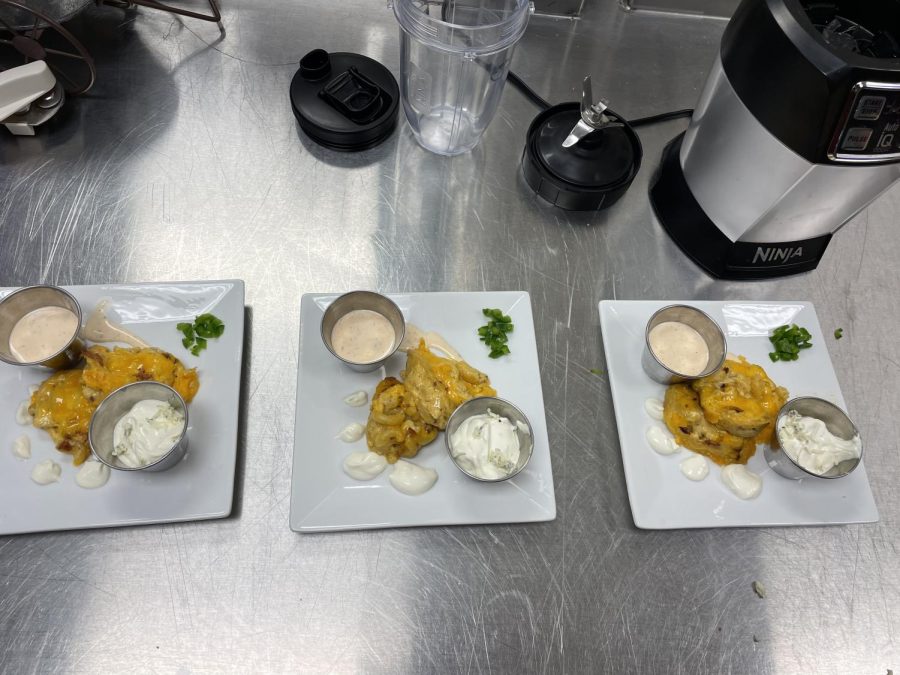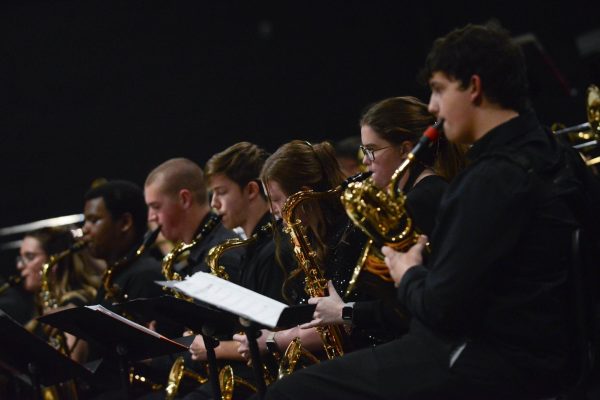RTI Spotlight: Culinary Arts
Rolla Technical Institute is a vocational tech school that hosts classes for the students of Rolla High School and other students in surrounding areas. RTI offers a culinary arts program.
“Students learn a variety of skills in the RTI Culinary Arts program that can help propel them into a position in the restaurant industry. [It can] simply allow them to have a better understanding of cooking and baking techniques that may help them as a person truly interested in food and food production,” stated RTI Culinary Arts Instructor, Carmel Dare.
The RTI Culinary Arts program also prepares students for further study at the college level.
“I am planning on going to the College of the Ozarks, because they have a five star restaurant, and they also provide work study,” stated senior Isabelle Crowell, who is a student in the Culinary Arts program at RTI.
Another student, senior Lucy Baur, has always had an interest in the culinary field. The program has inspired her to also go to the College of the Ozarks for agribusiness.
“I joined the culinary arts program because since I was around kindergarten, I’ve always wanted to be a chef. The class just seemed like a good way to get started,” stated Baur. “I am [planning on going to college] to major in agribusiness. The eventual goal is for me to open a farm to table restaurant.”
There are many ways that the culinary arts can connect to future professions and careers. There is a need for many people to work in the culinary industry, but it is not just to work as chefs.
“Even before the pandemic, there has always been a need for people to work in the restaurant industry. There are always positions open, and even more opportunities are available for students who further their skills and education by either going to culinary school, joining the military as a culinary specialist, or seeking out apprenticeship opportunities,” stated Dare. “The culinary world is vast, and there are always opportunities for employment, education, growth and development of skills at every level in the career ladder.”
Along with having the ability to go to college in culinary arts, many students in the Culinary Arts program gain hands-on-experience and have a fun time learning new recipes.
“I think [my favorite recipe was] the ugly Christmas sweaters that we made [my] junior year. We were able to use a sheet cake and decorate it with all the icing, it was cute,” stated Crowell.
Students also participate in different challenges during class.
“We had a mac and cheese challenge, and I really liked that because that was our own creative spin. The first time I baked spicy asiago bagel mac and cheese, and then the second round I did jalapeno pepper mac and cheese bites. They were both pretty good, and I really enjoyed that,” said Baur.
Despite the class’s fun environment, students still face challenges while in the kitchen.
“[The biggest challenge] is probably staying organized, especially during the burger competitions, or the other food competitions that we have,” claimed Crowell. “We have to stay organized and have time management.”
Along with learning a variety of new things, students also learn how to work on a project with multiple people.
“I think the biggest challenge is learning my peers because we have to work together. Obviously, you have to work together in the real industry, but you have to learn how they think, what they want, how they communicate, and then work together,” stated Baur.
While many RTI classes can be daunting to schedule with their 3-hour block, many of them contain embedded credits, which counts towards graduation requirements in core subjects.
“It’s [the Culinary Arts class] a three hour block, you either have it in the morning or the afternoon. I’ve had it in the afternoon both years. We typically start off with ServSafe management in those ServSafe courses, which you get certified in. Then, we also have embedded English and math included in the kitchen hands-on work,” stated Crowell.
One major topic that always has to be covered in the classroom before trying new recipes and cooking is safety management, which is the most important thing when it comes to cooking.
“Before you even go in the kitchen, you have to learn all the safety stuff and be certified in safety, and that’s a good thing. I wouldn’t want someone who doesn’t know how to use a knife or doesn’t understand that you need to stay sharp when you’re going around with a knife. I mean, if you were cutting on a cutting board, and then you just suddenly turned around with a knife and someone was behind you and you didn’t say anything, that would be a problem,” stated Baur. “I definitely think it’s very helpful for learning.”

Bonjour! I’m Hannah, the editor-in-chief of ECHO; and this is my third year on the staff. Along with ECHO, I work as the Phelps County Focus Sowers Intern...








